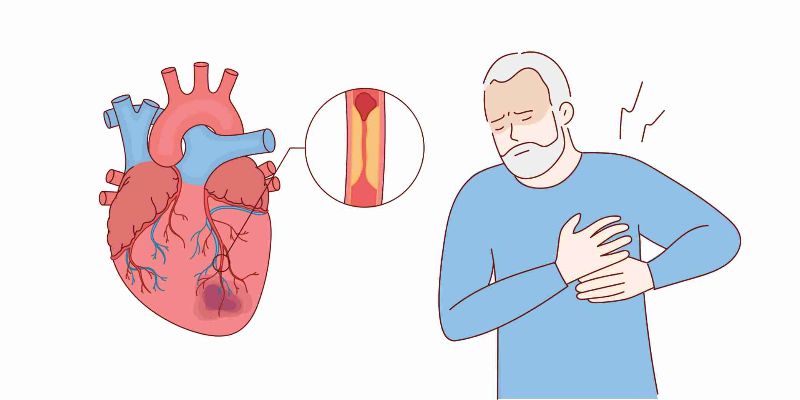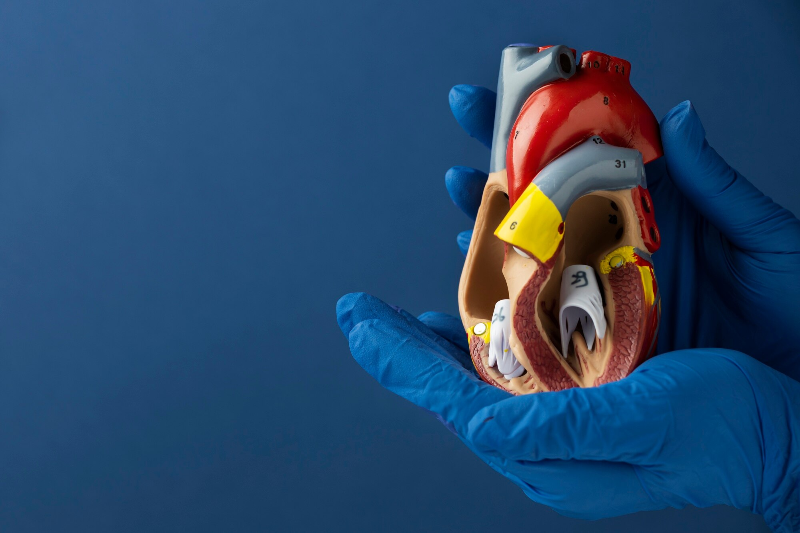by American Heart Association
Credit: Pixabay/CC0 Public Domain
Drinking multiple cups of coffee a day may help prevent cognitive decline in people with atrial fibrillation (AFib or AF), according to new research published in the Journal of the American Heart Association.
"Many myths are around, but our study found no reason to discourage or forbid a patient with AFib from drinking coffee. Instead, say, 'Enjoy, it may even be good for you,'" said Jürg H. Beer, M.D., senior author of the study and professor of medicine and hematology at the University of Zürich in Switzerland.
Atrial fibrillation is the most common heart rhythm disorder in adults, affecting more than 5 million people in the U.S., according to the American Heart Association. The 2023 ACC/AHA/ACCP/HRS Guideline for the Diagnosis and Management of Atrial Fibrillation noted that abstaining from caffeine to prevent heart rhythm disturbances is of no benefit to people with AFib. The guideline also notes that abstaining from coffee could reduce symptoms in patients who report that caffeine triggers or worsens their AFib symptoms, which can include rapid heartbeat, dizziness, fatigue and more.
"It is known that regular coffee consumption benefits cognitive performance among healthy people. The most frequent cardiac arrhythmia, atrial fibrillation, is known to independently increase the risk of dementia," said Massimo Barbagallo, M.D., lead author of the study and a resident in the neuro intensive care unit at the University Hospital Zürich. "Thus, the question is whether coffee might offset the increased risk of cognitive impairment in people with AFib."
According to the U.S. federal dietary guidelines, three to five 8-ounce cups of coffee per day can be part of a healthy diet, but that only refers to plain black coffee. The American Heart Association warns that popular coffee-based drinks such as lattes and macchiatos are often high in calories, added sugar and fat.
The Swiss Atrial Fibrillation Cohort Study (Swiss-AF) follows more than 2,400 people in Switzerland diagnosed with atrial fibrillation. Patients were enrolled between 2014 and 2017, completed several cognitive tests, and reported how many cups of caffeinated coffee they drank during the last 12 months—regardless of added sweeteners, creams or flavors. Cup size was not standardized.
In this study, researchers analyzed those cognitive assessments and examined whether drinking coffee might avoid the cognitive decline that is a known hazard of AFib. Because Alzheimer's disease and AFib are associated with systemic inflammation, researchers also analyzed markers of inflammation.
The study found:
Overall, higher cognitive test scores were associated with higher coffee consumption.
Specifically, scores for processing speed, visuomotor coordination and attention improved significantly by 11% among coffee consumers compared to non-consumers.
Cognitive age was calculated to be 6.7 years younger among those who drank the most coffee compared to those who drank the least.
Inflammatory markers were more than 20% lower in participants drinking five cups daily than in participants drinking less than one cup daily.
Researchers did not find any interaction among age, sex and coffee consumption.
"There was a very clear and consistent 'dose-response' association between drinking more coffee and doing better on several different sophisticated cognitive tests," Beer said. "Inflammatory markers decreased with higher coffee consumption, an association that remained after considering variables such as age, sex, body mass index, smoking status, physical activity and a history of stroke."
Researchers noted that previous studies suggest that the protective effects of regular coffee consumption against cognitive decline in the elderly may be attributed to caffeine and other active ingredients including magnesium and vitamin B3 (niacin); or that it may be due to coffee's role in reducing chemicals that cause inflammation.
José A. Joglar, M.D., FAHA, chair of the 2023 joint guideline on the management of atrial fibrillation, cautioned that this observational study cannot conclude that coffee actually prevents long-term cognitive decline.
"Other studies have shown coffee has cognitive-enhancing functions across the board. This, however, is not specific to the AFib population. We cannot conclude that coffee prevents long-term cognitive decline," said Joglar, professor of Internal Medicine at UT Southwestern Medical Center in Dallas. "Coffee does not seem to worsen AFib, so there is no need to stop drinking it. However, we cannot say starting to drink coffee would prevent AFib or prevent long-term cognitive decline."
The study's limitations include the fact that researchers measured participants' cognitive ability and coffee consumption at the same point in time. This means that the study could not evaluate differences in cognitive decline with age, and that the reported current coffee drinking may not reflect changes in consumption over the previous years. As a cross-sectional study taking place at one point, it cannot establish a cause-and-effect relationship between drinking coffee and cognitive performance. Additionally, the study may not be generalizable to other populations as it included a mostly white population in Switzerland, where people tend to drink espresso.
"To detect a relevant cognitive decline, a follow-up of at least 5-10 years is required. However, the nutritive habits including coffee consumption reported by participants reflect exposure over many years and we likely see here the results of this," Barbagallo said.
Study details, background and design:
The study included 2,413 people (average age 73; 27% women) with atrial fibrillation enrolled in Swiss Atrial Fibrillation Cohort Study (Swiss-AF) between 2014 and 2017. Swiss-AF is ongoing at 14 centers across all language regions in Switzerland.
Participants had undergone at least eight years of monitoring for stroke, mini-stroke, inflammation blood markers and blood-clotting, brain imaging and repeated cognitive testing. Patients were excluded from the analysis if they had experienced only brief episodes of AFib that had resolved without treatment, or if they were unable to give informed consent.
At enrollment, participants reported their caffeinated coffee consumption over the past year, with responses summarized as less than one cup a day, one cup a day, two- to three-cups a day, four- to five-cups a day and more than five cups a day. Size of cup or concentration of caffeine per cup was not quantified. The addition of creams, sugars or flavors was not considered.
At enrollment, participants completed various cognitive tests measuring verbal skills, executive functioning, memory, processing speed, visual-motor coordination and attention. These were combined into an overall rating of cognitive ability called the Cognitive Construct (CoCo). Participants also completed a 30-point screening test for cognitive impairment, the Montreal Cognitive Assessment, gauging visuospatial and executive functions, naming objects, memory, attention, language and abstraction abilities.
Participants were also evaluated for depression using the Geriatric Depression Scale so researchers could evaluate whether cognitive performance had likely been altered by depression.
More information: Massimo Barbagallo et al, Coffee Consumption Correlates With Better Cognitive Performance in Patients With a High Incidence for Stroke, Journal of the American Heart Association (2024). DOI: 10.1161/JAHA.124.034365
Journal information: Journal of the American Heart Association
Provided by American Heart Association








Post comments